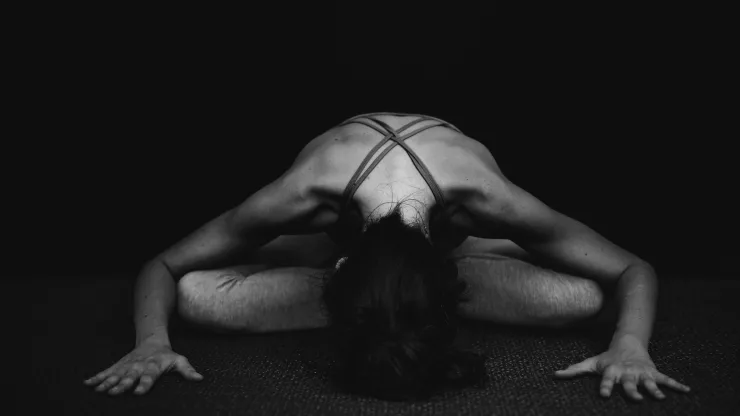The Power of Mindfulness
In today’s fast-paced world, it’s easy to get caught up in the hustle and bustle of daily life.
We often find ourselves multitasking, rushing from one task to the next, and feeling overwhelmed with stress and anxiety.
However, mindfulness exercises offer a simple and effective way to slow down, focus on the present moment, and cultivate a sense of inner peace and happiness.
Mindfulness is the practice of paying attention to the present moment, without judgment or distraction.
By bringing our attention to our thoughts, feelings, and sensations, we can develop greater self-awareness, reduce stress and anxiety, and improve our overall well-being.
In this article, we’ll explore the benefits of practicing mindfulness exercises, simple exercises to try today, and how to make mindfulness a daily habit.
Jump to Section
Benefits of Practicing Mindfulness Exercises
Mindfulness exercises offer a wide range of benefits for both our physical and mental health. Some of the key benefits of practicing mindfulness exercises include:
- Reduced stress and anxiety: Mindfulness exercises can help us to manage stress and anxiety by teaching us to focus on the present moment and let go of worries and distractions.
- Improved mental clarity and focus: By practicing mindfulness, we can develop greater mental clarity and focus, making it easier to concentrate on tasks and make decisions.
- Increased self-awareness: Mindfulness exercises can help us to become more aware of our thoughts, feelings, and physical sensations, allowing us to better understand ourselves and our emotions.
- Improved relationships: Mindfulness can help us to become more compassionate, empathetic, and understanding towards others, improving our relationships and social connections.
- Better physical health: Mindfulness exercises have been shown to improve physical health by reducing inflammation, lowering blood pressure, and boosting immune function.
Simple Mindfulness Exercises to Try Today
There are many different mindfulness exercises that you can try today to start experiencing the benefits of mindfulness for yourself. Here are a few simple exercises to get you started:
- Mindful breathing: Sit in a quiet place and focus on your breath, paying attention to the sensations of each inhale and exhale. Try to let go of any distractions and simply observe your breath for a few minutes.
- Body scan: Lie down or sit in a comfortable position and focus on each part of your body, starting at your toes and working your way up to the top of your head. Notice any sensations or feelings in each part of your body, without judgment or distraction.
- Mindful eating: Choose a small piece of food, such as a raisin or a piece of chocolate, and focus on it for a few minutes. Notice the texture, taste, and sensations in your mouth as you eat it, without any distractions or judgments.
How to Make Mindfulness a Daily Habit
To experience the full benefits of mindfulness, it’s important to make it a daily habit. Here are a few tips to help you make mindfulness a regular part of your routine:
- Set aside time each day: Schedule a specific time each day to practice mindfulness, whether it’s first thing in the morning, during your lunch break, or before bed.
- Start small: Begin with just a few minutes of mindfulness each day and gradually increase the amount of time you spend practicing.
- Be consistent: Consistency is key when it comes to mindfulness. Try to practice at the same time each day and make it a non-negotiable part of your routine.
- Practice mindfulness in daily activities: You don’t have to set aside specific time for mindfulness exercises. Try to incorporate mindfulness into your daily activities, such as walking, cooking, or washing dishes.
Mindful Living: Applying Mindfulness in Daily Life
Mindfulness isn’t just about practicing specific exercises – it’s a way of life. By bringing mindfulness into our daily activities and interactions, we can cultivate greater awareness, presence, and happiness.
Here are a few tips for applying mindfulness in daily life:
- Practice active listening: When you’re having a conversation with someone, give them your full attention and listen actively, without distractions or judgment.
- Be present in the moment: When you’re doing a task, try to focus on the present moment and let go of any distractions or worries.
- Cultivate gratitude: Take time each day to reflect on the things you’re grateful for, whether it’s a beautiful sunset, a delicious meal, or a kind gesture from a friend.
- Practice self-compassion: Treat yourself with kindness and compassion, just as you would treat a good friend. Be gentle with yourself and let go of self-judgment and criticism.
Mindfulness and Happiness: The Connection Explained
Mindfulness and happiness are closely intertwined. By practicing mindfulness, we can cultivate greater happiness and well-being in our lives. Here’s how mindfulness can help us to be happier:
- Mindfulness helps us to let go of negative thoughts and emotions, reducing stress and anxiety and increasing positive emotions like joy and contentment.
- By becoming more self-aware through mindfulness, we can identify our values and goals and align our actions with them, leading to greater purpose and fulfillment in life.
- Mindfulness can help us to develop greater compassion and empathy towards others, improving our relationships and social connections.
FAQ
What is the best time of day to practice mindfulness exercises?
There’s no one-size-fits-all answer to this question – it depends on your schedule and personal preferences.
Some people prefer to practice mindfulness first thing in the morning, while others find it helpful to practice during their lunch break or before bed.
Experiment with different times of day to see what works best for you.
How long should I practice mindfulness each day?
Again, this depends on your personal preferences and schedule. Some people find it helpful to practice for just a few minutes each day, while others prefer to practice for longer periods of time.
Start with just a few minutes each day and gradually increase the amount of time you spend practicing.
Can mindfulness help with depression?
Yes, mindfulness has been shown to be an effective tool for managing symptoms of depression. By helping us to become more self-aware and reduce negative thoughts and emotions, mindfulness can improve our overall mood and well-being.
However, if you’re experiencing severe depression, it’s important to seek professional help from a therapist or healthcare provider.

With a deep passion for personal development, Ben has dedicated his career to inspiring and guiding others on their journey towards self-improvement.
His love for learning and sharing knowledge about personal growth strategies, mindfulness, and goal-setting principles has led him to create My Virtual Life Coach.
Contact Ben at [email protected] for assistance.




